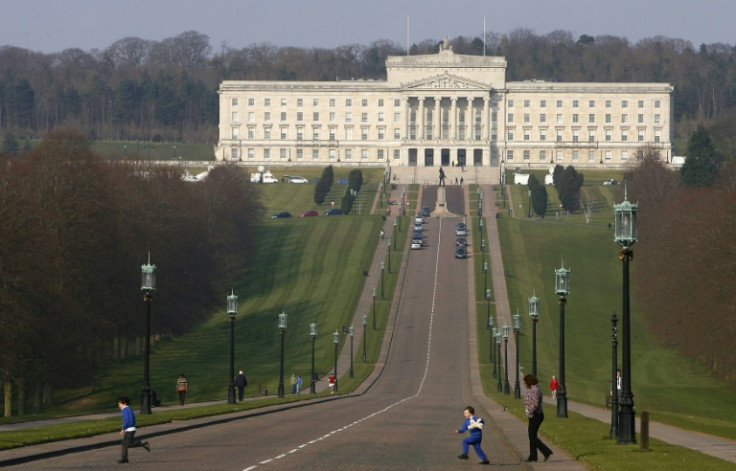N.Ireland set for fresh elections over post-Brexit impasse
It has been without a functioning government since February, after the pro-UK Democratic Unionist Party (DUP) collapsed the executive over its staunch opposition to post-Brexit trade rules there.

Northern Ireland on Wednesday appeared headed for a second election this year, after UK government efforts to resolve months of political stalemate over its post-Brexit status failed to secure a breakthrough.
Chris Heaton-Harris, Britain's Northern Ireland minister, has been holding talks with the political parties in a fresh bid to get them to form a new executive.
If no agreement is reached by Friday, London will be legally required to call early elections for the devolved assembly in the volatile province.
It has been without a functioning government since February, after the pro-UK Democratic Unionist Party (DUP) collapsed the executive over its staunch opposition to post-Brexit trade rules there.
It wants the so-called Northern Ireland Protocol agreed by London and Brussels as part of Britain's 2019 Brexit deal overhauled or scrapped entirely. They say it weakens the province's place within the UK.
Many unionists also argue the pact is threatening the delicate balance of peace between the pro-Irish nationalist community and those in favour of continued union with the UK.
The measures, which effectively keep Northern Ireland in the European Union's single market and customs union, were agreed to avoid the return of a hard land border with the neighbouring Republic of Ireland which remains an EU member.
Eliminating that hard border was a key strand of the 1998 Good Friday Agreement, which ended three decades of sectarian violence in Northern Ireland.
Pro-Irish party Sinn Fein scored a historic first electoral victory in May, further complicating efforts to restore power-sharing.
DUP leader Jeffrey Donaldson said Wednesday he had reiterated to Heaton-Harris the need "to clear away the debris of the protocol". An election would do little to resolve the standoff, he said.
"I don't think it helps us to get any quicker towards the solution that we need or to get the political institutions back up and running," he added.
Donaldson noted the party was nonetheless ready to contest a fresh ballot.
Sinn Fein leader Michelle O'Neill, who is set to become Northern Ireland's first minister if the executive can be restarted, renewed her call for the DUP to end its boycott.
"I appeal to those blocking an executive, to work with the rest of us & put money into people's pockets," she tweeted on Wednesday.
Britain's government, wracked by political turmoil which has seen three prime ministers in two months, has urged Brussels to revise the protocol, and is passing contentious legislation to rip it up.
Britain has previously threated to unilaterally modify the protocol.
That has sparked fears of a trade war and worsening relations with Europe, when the economic landscape is already gloomy.
Northern Ireland's political impasse was discussed in a phone call on Wednesday between Irish premier Micheal Martin and the new British Prime Minister Rishi Sunak, who only took office the previous day.
The two leaders "agreed on the vital importance of a strong relationship between the UK and Ireland", Downing Street said.
On the Northern Ireland Protocol, Sunak stressed that he would prefer "a negotiated outcome and hoped all parties would approach the current challenges with pragmatism and goodwill," his office added.
The British premier tweeted that he discussed with Martin "how the UK and Ireland as close neighbours and friends can work together in the coming months".
Sunak also spoke by phone with EU leader Ursula von der Leyen, who said on Twitter that she hopes to find "joint solutions under the protocol... that will provide stability and predictability".
© Copyright AFP 2025. All rights reserved.





















